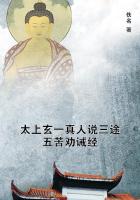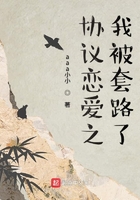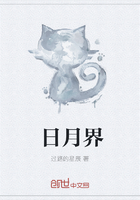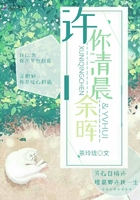Sophy McAlery had begun to complain:and I gathered that Sophy was Nancy's confidante.The other girls had begun to gossip.It was Nancy who conceived the brilliant idea--the more delightful because she said nothing about it to me--of ****** use of Sophy.She would leave school with Sophy,and I waited on the corner near the McAlery house.Poor Sophy!She was always of those who piped while others danced.In those days she had two straw-coloured pigtails,and her plain,faithful face is before me as I write.She never betrayed to me the excitement that filled her at being the accomplice of our romance.
Gossip raged,of course.Far from being disturbed,we used it,so to speak,as a handle for our love-******,which was carried on in an inferential rather than a direct fashion.Were they saying that we were lovers?Delightful!We laughed at one another in the sunshine....At last we achieved the great adventure of a clandestine meeting and went for a walk in the afternoon,avoiding the houses of our friends.I've forgotten which of us had the boldness to propose it.The crocuses and tulips had broken the black mould,the flower beds in the front yards were beginning to blaze with scarlet and yellow,the lawns had turned a living green.What did we talk about?The substance has vanished,only the flavour remains.
One awoke of a morning to the twittering of birds,to walk to school amidst delicate,lace-like shadows of great trees acloud with old gold:
the buds lay curled like tiny feathers on the pavements.Suddenly the shade was dense,the sunlight white and glaring,the odour of lilacs heavy in the air,spring in all its fulness had come,--spring and Nancy.
Just so subtly,yet with the same seeming suddenness had budded and come to leaf and flower a perfect understanding ,which nevertheless remained undefined.This,I had no doubt,was my fault,and due to the incomprehensible shyness her presence continued to inspire.Although we did not altogether abandon our secret trysts,we began to meet in more natural ways;there were garden parties and picnics where we strayed together through the woods and fields,pausing to tear off,one by one,the petals of a daisy,"She loves me,she loves me not."I never ventured to kiss her;I always thought afterwards I might have done so,she had seemed so willing,her eyes had shone so expectantly as I sat beside her on the grass;nor can I tell why I desired to kiss her save that this was the traditional thing to do to the lady one loved.To be sure,the very touch of her hand was galvanic.Paradoxically,I saw the human side of her,the yielding gentleness that always amazed me,yet Inever overcame my awe of the divine;she was a being sacrosanct.Whether this idealism were innate or the result of such romances as I had read Icannot say....I got,indeed,an avowal of a sort.The weekly dancing classes having begun again,on one occasion when she had waltzed twice with Gene Hollister I protested.
"Don't be silly,Hugh,"she whispered."Of course I like you better than anyone else--you ought to know that."We never got to the word "love,"but we knew the feeling.
One cloud alone flung its shadow across these idyllic days.Before I was fully aware of it I had drawn very near to the first great junction-point of my life,my graduation from Densmore Academy.We were to "change cars,"in the language of Principal Haime.Well enough for the fortunate ones who were to continue the academic journey,which implied a postponement of the serious business of life;but month after month of the last term had passed without a hint from my father that I was to change cars.Again and again I almost succeeded in screwing up my courage to the point of mentioning college to him,--never quite;his manner,though kind and calm,somehow strengthened my suspicion that Ihad been judged and found wanting,and doomed to "business":galley slavery,I deemed it,humdrum,prosaic,degrading!When I thought of it at night I experienced almost a frenzy of self-pity.My father couldn't intend to do that,just because my monthly reports hadn't always been what he thought they ought to be!Gene Hollister's were no better,if as good,and he was going to Princeton.Was I,Hugh Paret,to be denied the distinction of being a college man,the delights of university existence,cruelly separated and set apart from my friends whom I loved!held up to the world and especially to Nancy Willett as good for nothing else!The thought was unbearable.Characteristically,I hoped against hope.
I have mentioned garden parties.One of our annual institutions was Mrs.
Willett's children's party in May;for the Willett house had a garden that covered almost a quarter of a block.Mrs.Willett loved children,the greatest regret of her life being that providence had denied her a large family.As far back as my memory goes she had been something of an invalid;she had a sweet,sad face,and delicate hands so thin as to seem almost transparent;and she always sat in a chair under the great tree on the lawn,smiling at us as we soared to dizzy heights in the swing,or played croquet,or scurried through the paths,and in and out of the latticed summer-house with shrieks of laughter and terror.It all ended with a feast at a long table made of sawhorses and boards covered with a white cloth,and when the cake was cut there was wild excitement as to who would get the ring and who the thimble.













